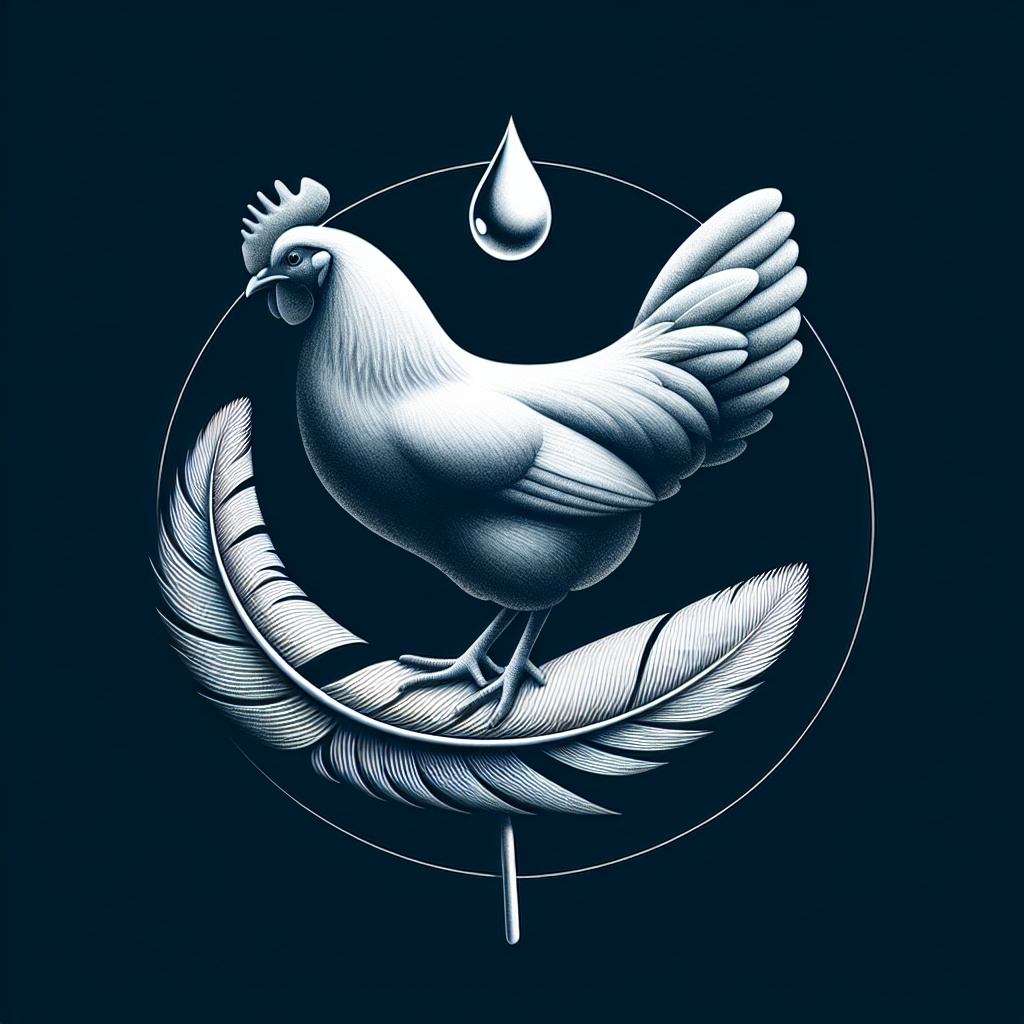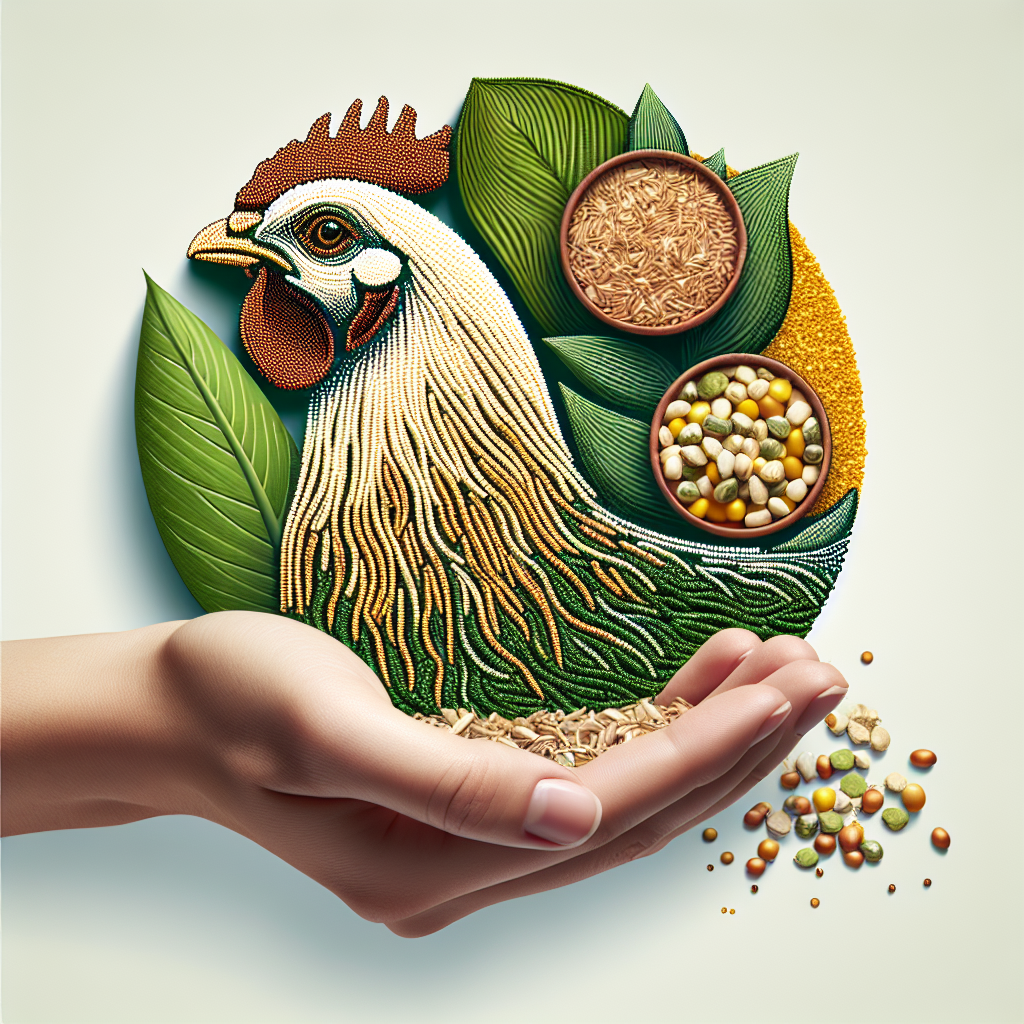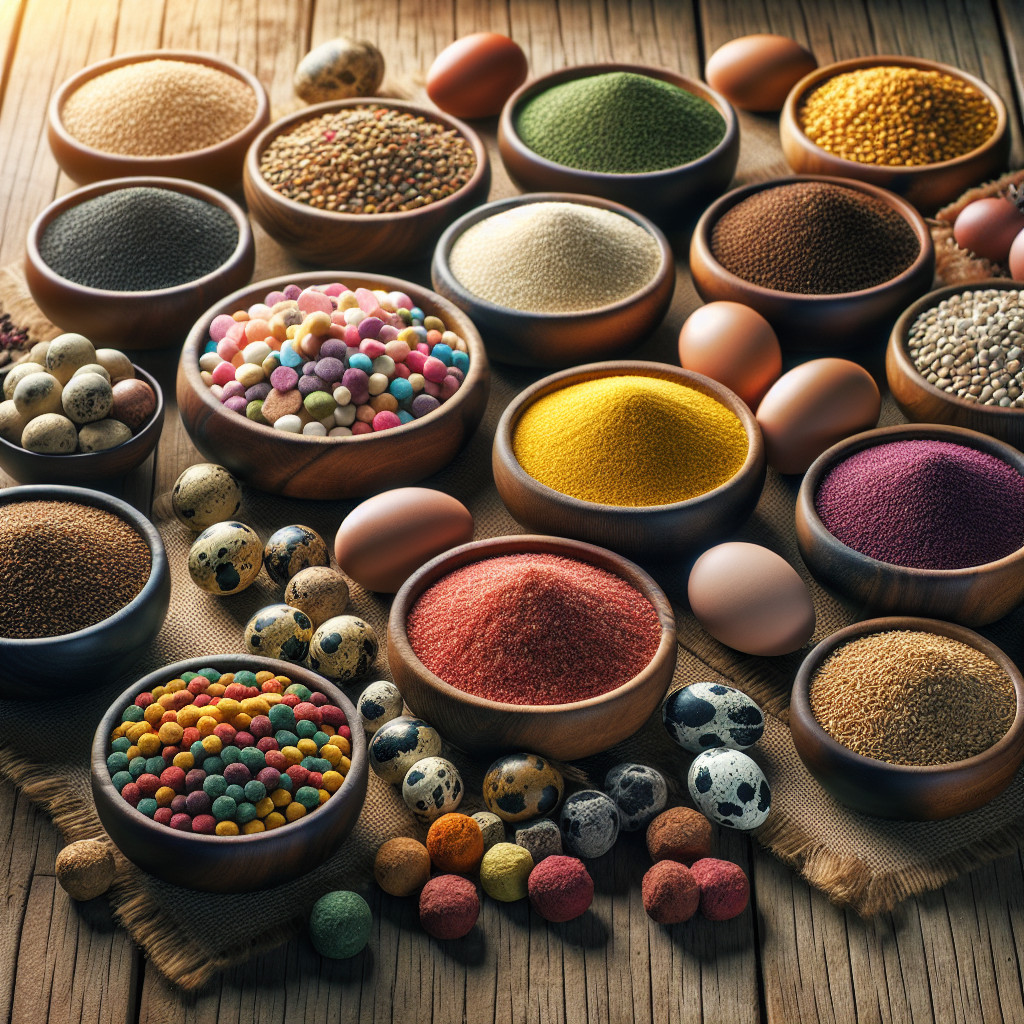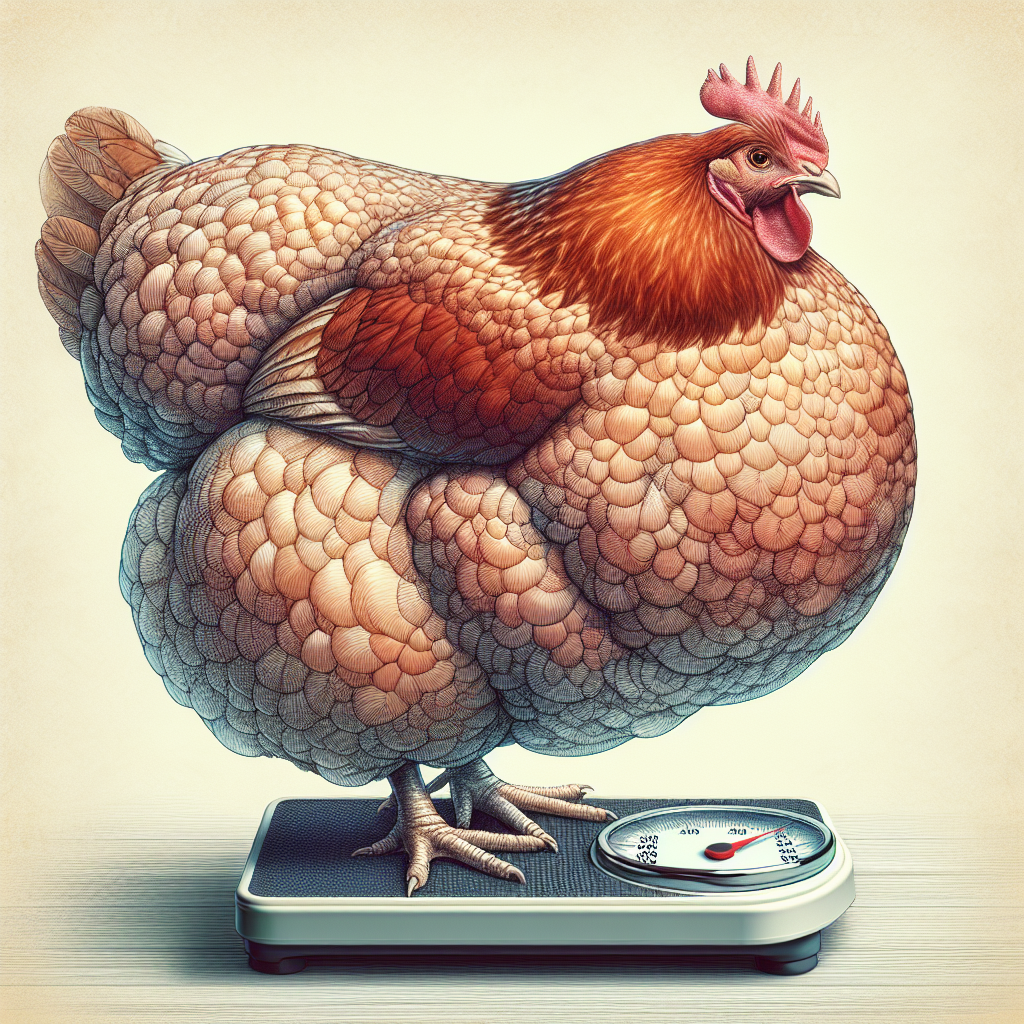Have you ever wondered how important water is for chickens and how it impacts their nutrition? Water is not just a basic necessity for chickens, but it plays a critical role in their overall health and wellbeing. Understanding their water requirements and how it influences their nutrition is essential for every chicken owner. In this article, we will explore the importance of water for chickens and how it affects their dietary needs. Let’s dive into the fascinating world of chicken hydration and nutrition!
Importance of Water for Chickens
Chickens require water as an essential component of their daily needs. Water plays a vital role in their hydration, nutrient absorption, body temperature regulation, and overall health.
A. Essential component of hydration
Water is crucial for maintaining proper hydration in chickens. Just like humans, chickens need water to survive and stay healthy. Water supports the functions of various bodily systems, including digestion, respiration, and circulation. It keeps their bodies hydrated and ensures that they can carry out their bodily functions optimally.
B. Facilitates nutrient absorption
Water is necessary for the absorption and utilization of nutrients from the chicken’s feed. It helps break down food particles and aids in the digestion process. Without enough water, chickens may struggle to digest their food properly and may not be able to extract all the essential nutrients from their diet.
C. Maintains body temperature
Water plays a crucial role in regulating the body temperature of chickens. Chickens do not have sweat glands like humans, so they rely on panting and other cooling mechanisms to dissipate heat. Providing an adequate water supply helps chickens to cool down through panting and enables them to maintain an optimal body temperature, especially during hot weather.
D. Supports overall health
Water is essential for maintaining the overall health of chickens. It helps transport nutrients and oxygen throughout their bodies, lubricates their joints, aids in waste removal, and supports healthy organ function. By ensuring a sufficient water supply, chicken owners can help promote their birds’ overall well-being and reduce the risk of diseases and health issues.
II. Factors Affecting Water Requirements
Several factors influence the water requirements of chickens. It is essential to consider these factors to ensure that the chickens receive an appropriate amount of water for their specific needs.
A. Age and activity level of chickens
The age and activity level of chickens play a significant role in determining their water requirements. Younger chickens generally have higher water needs compared to adult ones. Chicks and growing chickens require more water to support their rapid growth and development. Additionally, more active chickens, such as free-range birds, may have a higher water intake due to increased movement and exercise.
B. Environmental conditions
Environmental conditions, especially temperature and humidity, greatly affect the water requirements of chickens. High temperatures and dry environments can lead to increased water loss through panting and evaporation. In contrast, cold temperatures may decrease water intake as chickens may consume less to conserve energy. It is crucial to consider the climate and adjust water supply accordingly to ensure appropriate hydration.
C. Feed composition
The composition of the chicken’s feed can also influence its water requirements. Wet or moist feeds, such as those containing fresh fruits and vegetables, can contribute to the chicken’s overall water intake. Conversely, dry feeds may require chickens to drink more water to compensate for the lack of moisture in their diet. The type and formulation of the feed should be taken into account when determining the water supply for chickens.
III. Optimal Water Consumption for Different Stages of Growth
Different stages of growth have varying water requirements for chickens. Understanding the optimal water consumption for each stage enables chicken owners to meet their birds’ specific needs.
A. Broilers (meat-producing chickens)
Broiler chickens, raised for meat production, have relatively high water requirements. These birds grow rapidly and have a higher metabolic rate, which increases their demand for water. On average, broilers consume around 1.5 to 2.5 times more water than they do feed. Providing unlimited access to clean, fresh water is crucial for their growth and overall health.
B. Layers (egg-producing chickens)
Layers, also known as egg-producing chickens, have specific water requirements to support their egg production. Adequate hydration is critical for the formation of eggs and the prevention of eggshell abnormalities. Layers generally require a water-to-feed ratio of about 2:1, meaning they typically consume twice as much water as they do feed. A consistent and sufficient water supply ensures the proper development of eggs and helps maintain the overall health of the layers.
C. Growers and pullets (young chickens)
Young chickens, including growers and pullets, have higher water requirements compared to adult birds. Their bodies are rapidly growing and developing, and they need sufficient water to support this growth. Growers and pullets typically require a water-to-feed ratio higher than 2:1, as they require more water for proper hydration and nutrient absorption. Providing fresh and clean water at all times is crucial to their development.
IV. Water Quality and Sources
The quality of water provided to chickens is of utmost importance. Poor water quality can impact their health and overall performance. Understanding the role of water quality, common contaminants, and choosing appropriate water sources helps ensure optimal water supply for chickens.
A. Role of water quality
Good water quality is essential for maintaining healthy chickens. Contaminated or poor-quality water can lead to various health issues, including bacterial or viral infections, impaired digestion, and decreased nutrient absorption. Providing clean and fresh water helps prevent waterborne diseases and supports the overall well-being of the chickens.
B. Common water contaminants
Water can be contaminated with various substances that can negatively affect chickens. Common contaminants include bacteria, viruses, parasites, heavy metals, pesticides, and chemicals. These contaminants can enter the water through environmental sources, such as polluted water sources or improper storage and handling practices. Regular testing for water quality and implementing appropriate treatment measures are vital to ensure a safe water supply for chickens.
C. Choosing appropriate water sources
Choosing the right water sources is crucial to ensure a clean and safe water supply for chickens. Whenever possible, using a reliable and tested public water supply is recommended. If other water sources, such as wells, ponds, or rainwater collection, are used, it is essential to regularly test and treat the water to ensure its safety. Avoiding sources with potential contaminants, such as standing water with fecal matter, helps minimize the risk of water-related illnesses.
V. Nutritional Impact of Inadequate Water Supply
Inadequate water supply can have a significant impact on the nutritional status and overall health of chickens. Without enough water, chickens may experience a range of issues that affect their growth, productivity, and immune system.
A. Reduced feed intake
Inadequate water supply can result in reduced feed intake in chickens. Water is essential for the proper functioning of their digestive system, and without enough water, chickens may eat less, leading to nutrient deficiencies and slower growth.
B. Poor weight gain and growth
Water plays a vital role in the growth and weight gain of chickens. Insufficient water intake can hinder their growth rate, resulting in poor weight gain and smaller-sized birds. Providing an adequate and clean water supply is crucial for supporting optimal growth in chickens.
C. Decreased egg production
For layers, inadequate water supply can significantly impact egg production. Water is essential for the formation and development of eggs. Lack of proper hydration can result in decreased egg production, smaller-sized eggs, or eggshell abnormalities. Maintaining a consistent and sufficient water supply is vital to support healthy egg production in layers.
D. Weakened immune system
Water plays a crucial role in supporting the immune system of chickens. Without enough water, their immune response may be compromised, making them more susceptible to diseases and infections. Adequate water intake is necessary to help keep chickens healthy and resilient against common diseases.
VI. Monitoring Water Consumption
Regular monitoring of water consumption is essential to ensure that chickens have access to an adequate water supply and to detect any potential issues related to water quality or availability.
A. Importance of regular monitoring
Regular monitoring of water consumption helps ensure that chickens are receiving enough water for their needs. It allows chicken owners to identify any significant changes in water intake, which may indicate health problems or changes in environmental conditions.
B. Measuring water intake
Measuring water intake can be done by calculating the weekly or daily water usage. This can be achieved by recording the amount of water supplied and the amount remaining, taking into account any water used for cleaning or spillage. Keeping accurate records helps in identifying any deviations from normal water intake.
C. Detecting signs of water-related issues
Monitoring water consumption can help in identifying signs of water-related issues. These signs may include reduced water intake, changed behavior around water sources, or visible signs of illness. Prompt action can be taken to rectify any issues with water quality or availability, ensuring the continued health and well-being of the chickens.
VII. Watering Systems for Chickens
Different types of watering systems can be used to provide water to chickens. Understanding the various options helps cater to the needs of chickens at different stages of growth and enables efficient water delivery.
A. Traditional waterers (fountain or trough style)
Traditional waterers, such as fountain or trough style, are commonly used for providing water to chickens. These systems are suitable for chickens of all ages and can easily be cleaned and refilled. They offer a straightforward and cost-effective way of delivering water to chickens.
B. Nipple drinkers
Nipple drinkers are an efficient and relatively modern way of providing water to chickens. These systems consist of small nipples that release water when chickens peck at them. Nipple drinkers reduce the risk of water contamination and spillage. They are particularly useful for adult chickens and can be easily installed in poultry houses.
C. Automatic watering systems
Automatic watering systems are convenient for providing a continuous and clean water supply to chickens. These systems are typically connected to a water source and use pipes and valves to deliver water to individual drinking points. Automatic watering systems require initial setup but can save time and effort in the long run.
D. Watering devices for different age groups
Different age groups of chickens may require specific watering devices to meet their needs. For example, chicks may benefit from smaller-sized waterers or shallow water dishes to prevent drowning. As chickens grow, their watering devices can be adjusted to accommodate their size and water requirements. It is essential to choose appropriate watering devices that are easy to clean and provide easy access to water for the chickens.
VIII. Ensuring Clean Water Supply
Maintaining a clean and uncontaminated water supply is crucial for the health and well-being of chickens. Regular cleaning and maintenance, prevention of contamination, and using appropriate water sanitation methods help ensure a safe water supply.
A. Regular cleaning and maintenance
Waterers and watering systems should be regularly cleaned and maintained to prevent the growth of bacteria and other contaminants. Cleaning should involve thorough rinsing and scrubbing of waterers with warm, soapy water, followed by disinfecting with a suitable sanitizer. Regularly inspecting and repairing any leaks or damages in the waterers helps ensure proper water delivery.
B. Preventing contamination
Preventing water contamination is essential to maintain a safe water supply for chickens. Water containers should be placed above ground level to prevent fecal matter or debris from contaminating the water. Regularly check for and remove any fallen feathers, dirt, or other foreign objects from the waterers. Additionally, ensure that water sources, such as ponds or wells, are protected from potential pollutants or contaminants.
C. Water sanitation methods
Implementing water sanitation methods is crucial for ensuring a clean water supply for chickens. Chlorination or other approved water treatments can help kill bacteria, viruses, and parasites that may be present in the water. It is essential to follow the recommended dosage and safety guidelines when using water treatments to prevent any adverse effects on the chickens.
IX. Seasonal Considerations
Seasonal changes, such as hot weather or cold conditions, require special attention to meet the water requirements of chickens.
A. Water requirements in hot weather
During hot weather, chickens may require additional water to stay hydrated and cool down. The heat can lead to increased water loss through panting and evaporation, making it crucial to provide sufficient water sources and replenish them as needed. Offering shade and maintaining good ventilation in the chicken coop can also help prevent heat stress and reduce water requirements.
B. Watering strategies for cold conditions
In cold conditions, chickens may consume less water due to decreased activity and reduced energy expenditure. However, it is essential to ensure that water is not frozen as chickens still require access to water even in colder temperatures. Using heated waterers or regularly providing warm water can help prevent freezing and ensure a continuous water supply for chickens.
X. Conclusion
Meeting the water requirements of chickens is crucial for their optimal nutrition, growth, and overall health. Water serves as an essential component of hydration, facilitates nutrient absorption, and helps maintain body temperature. Factors such as age, activity level, environmental conditions, and feed composition influence the water requirements of chickens. Understanding the specific needs of chickens at different stages of growth allows for appropriate water consumption. Ensuring clean water supply, monitoring water consumption, and choosing suitable watering systems contribute to the well-being of chickens. By prioritizing the provision of clean and fresh water, chicken owners can optimize the nutrition and overall health of their feathered friends.




